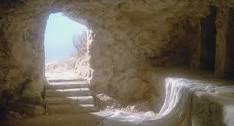Background Passages: John 20:1-16, I Corinthians 15
The universe and all that it will be was little more than a glint in the eyes of Creator God. His hand poised over an empty void like the conductor of a massive orchestra, God scripted the placement of each galaxy and star…every ocean and mountain on every planet…every molecule of life. He harbors in his heart the highlight of his creation…man and woman. God created us in his image. Even as he conceived us perfectly formed, he gave us free knowing we would fall short of his desire for us.
Armed with that knowledge, he built into his creation a plan of perfect redemption. A way to bridge the distance between a sinful me and a sinless God. Before the universe was formed, he made the call to send his son into the world to die on a cross for my sin and to be resurrected. He timed it perfectly.
“When the set time had fully come, God sent his son, born of a woman, born under the law.” (Galatians 4:4)
“For he was chosen before the creation of the world, but was revealed in these last times for your sake. Through him you believe in God who raised him from the dead and glorified him so your faith and hope are in God. (I Peter 1:20—21)
That seems an odd place to begin on this Resurrection Sunday, but I find it incredibly consequential that Good Friday and Easter were not a back-up plan for a God who didn’t see the need coming. Rather, the cross and the empty tomb were slipped into history as intentional acts of sacrifice and love offered by a God who deeply desires a relationship with you and me.
The crucifixion and the resurrection go hand in hand. One without the other makes little sense. One without the other doesn’t work. Together the cross and the empty tomb serve as the very foundation of the Christian faith…central to what we believe. The heart and soul of the gospel…the good news of Christ.
Look first to the cross. Sin separated us from God. We had no way of working our way back to him. No way of reconnecting once we distanced ourselves from him. Jesus took on himself my sin and yours as he hung on the cross. A sacrificial lamb whose blood erased our sin so we could again enter again into right relationship with him as we were intended…reconnected by God’s grace, through our faith in Jesus Christ. The cross is our salvation.
His resurrection sealed the deal. Locked it in place. The events of that day confirmed it.
*****
Mary Magdalene and a few other women who followed Jesus rose early on Sunday morning intent upon finishing the burial process which could not be completed before the Sabbath. They arrived at dawn to find the heavy stone rolled aside.
Timidly and fearfully, they peeked inside. The only items in the tomb were a few hastily spread spices and ointments Joseph and Nicodemus had placed on Friday and the neatly folded linens in which Jesus had been wrapped. Jesus was gone.
One of the women scurried back to the disciples with a frantic report. Peter and John raced to the tomb. After a quick inspection, the men confirmed that Jesus was missing. As most of the morning’s visitors returned home, some of the women stayed behind.
Two angels sought to comfort their crying and their fears. Confounding them by letting them know that Jesus had risen from the dead. Mary Magdalene, shocked and disoriented, turned and almost ran into Jesus, mistaking him for the gardener.
“Sir, if you’ve carried him away, tell me where you have put him and I will go to him.”
Jesus replied to her, “Mary.” (John 20:15-16)
At the sound of her name, Mary knew. The tomb was empty because Jesus was standing before her. Alive! Well! Risen!
*****
Over the course of the next 40 days, Jesus appeared to more than 500 people, according to scripture. Five hundred people who could testify to his resurrection. Five hundred people who could declare with certainty, “He is risen! He is risen, indeed!”
So, in our belief in Jesus as savior and Lord, the question is not do you believe in the resurrection? The questions are: What does it mean to you? What are you going to do with it?
Here’s my take on this continuing miracle in our lives.
Firstly, you and I can have the relationship we have with God because of the resurrection. He planned it that way. He made it happen. Jesus died on the cross for the forgiveness of our sins…past, present and future. It is the only way our sins can be erased.
“For the wages of sin is death, but the gift of God is eternal life.” (Romans 6:23)
The resurrection of Jesus confirmed that God accepted Jesus’ death as our substitute. We don’t have to pay the price because Jesus did. The resurrection is validation of Jesus’ work on the cross and a promise to us that once we put our faith in Jesus we no longer face the ultimate consequence of our sin. Hallelujah!
Secondly, the resurrection is our hope.
Physical death is the enemy of a sinful man. The mortality rate is, for all practical purposes, 100 percent…give or take Elijah and Jesus. No amount of medical technology or wealth changes that immutable fact.
It does not have to be the case with spiritual death. Christ rose from the grave because God is more powerful than death itself. Jesus’ resurrection shows that death has lost its grip on us. We do not need to fear it because, through Christ, we have been raised to new life.
“O Death, where is your victory? O Death, where is your sting? But, thanks be to God! He gives us the victory through our Lord Jesus Christ.” (I Corinthians 15:55-57)
Chapter 15 of 1 Corinthians explains that eternal life is ours. Whether we meet a physical death before Christ returns or whether we are present when he comes, Jesus will gather us all to him for eternity in the presence of the Father.
This is the basis for Christian hope. The world uses the word hope to express a desire for something to be true. “I hope she loves me.” “I hope I get that new job.” For Christians, hope in Christ is an assurance. An absolute. Hope in Christ guarantees life beyond our physical death, without question or pause. Everlasting life in the arms of God is assured.
Thirdly, the resurrection confirms that we serve a living savior.
No other faith tradition makes such a claim. In every other faith tradition, the principle head of that faith died, was buried and remains in the grave to this day. Only Jesus lives. The many witnesses of the risen Lord testified to his resurrection. They saw him alive. They touched his nail-scarred hands and pierced side. They saw him breathing. They saw him eating. They heard him speak. They heard him laugh.
Those witnesses are hard to refute. However, the greatest witness to his living presence is the Holy Spirit whom he sent to be with us in his place. In the hours before the cross Jesus offered comfort to his disciples. Sharing with them that he must return to the Father, but he would not leave them alone. He told them,
“I will ask the Father and he will give another Comforter to be with you forever—the Spirit of Truth…You know him for he lives with you and will be in you. I will not leave you as orphans. I will be with you.” (John 14:17-18)
It is the indwelling Holy Spirit that testifies to the living presence of Jesus in our lives today.
“When the Helper comes, whom I will send to you from the Father, that is the Spirit of truth who proceeds from the Father, he will testify about me.” (John 15:26)
The old hymn declares the promise. “We serve a living savior who’s in the world today. I know that he is living, whatever men may say. I see his hand of mercy. I hear his voice of cheer. And just the time I need him, he’s always near. He lives!”
Finally, if the resurrection means we have an eternal relationship with God…one that gives victory over death and a hope that endures forever…that we serve a living savior who lives within us through his spirit…then we bear a great responsibility to be faithful.
“Therefore, my dear brothers, stand firm. Let nothing move you. Always give yourselves fully to the work of the Lord because you know your labor in the Lord is not in vain.” (I Corinthians 15:58)
Our Passion Week closes. The dark days replaced by the eternal light of God’s love in living Lord.
He is risen!
He is risen, indeed!
Author’s Note: I hope you’ve found as much meaning in this week’s Easter series as I did during my study. May God bless you all.

